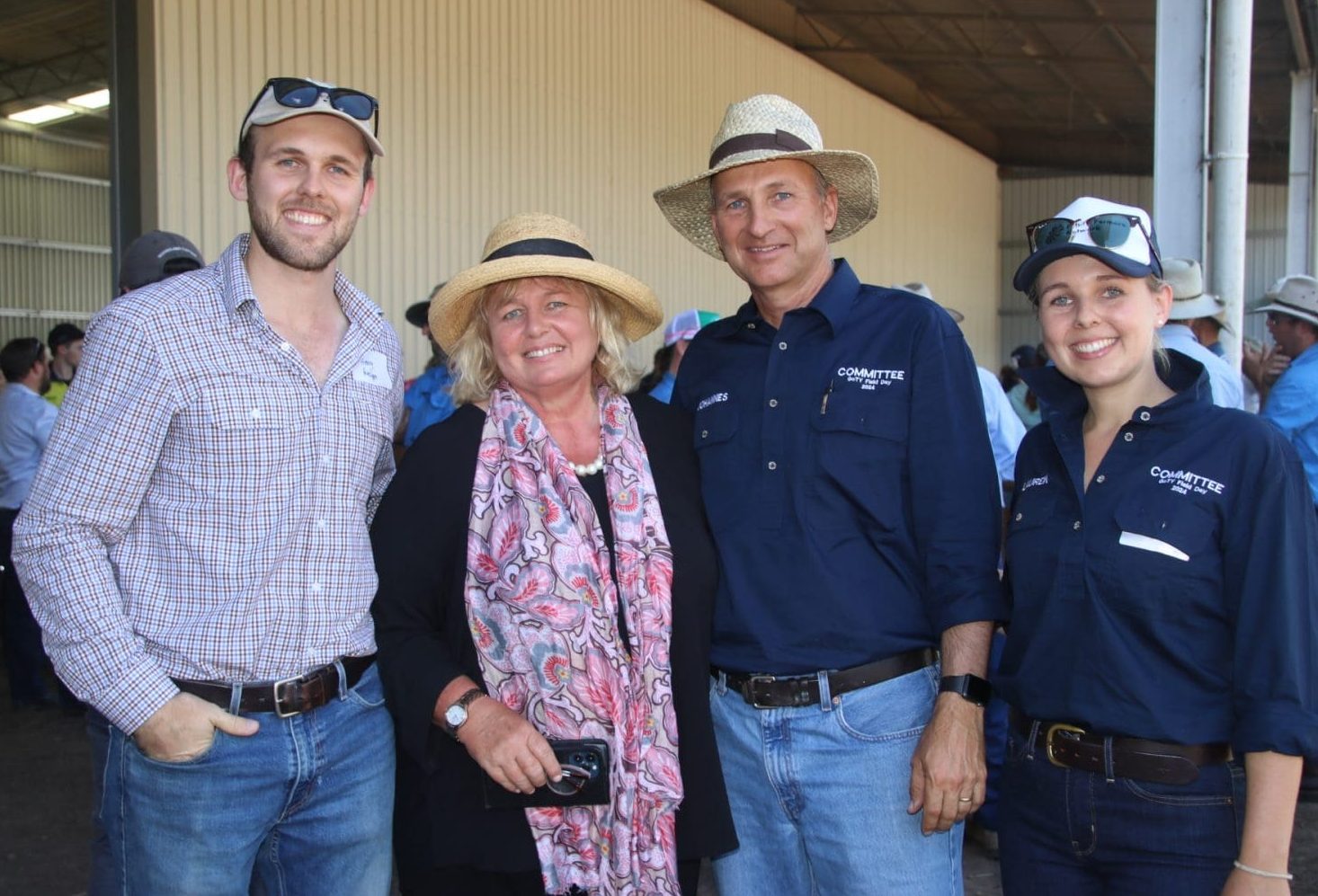
Henry, Scarlett, Johannes and Lauren Roellgen hosted the field day at their operation, Tyunga Farms, Brookstead.
ABOUT 240 cotton growers and industry members toured Tyunga Farms on Wednesday to hear about the benefits of adopting innovative nature and data-driven systems as used by Johannes and Scarlett Roellgen on their Brookstead property.
Cotton Australia hosted the event to showcase the achievements of the Roellgens, who were named the 2023 Bayer Cotton Growers of the Year.
Mr Roellgen said the field day, which included a bus tour of Tyunga Farms, provided an opportunity to share the knowledge gained from 30 years of innovating and trialling new systems at the operation.
“There is a lot of benefit in sharing information on all the things that have worked and haven’t worked,” Mr Roellgen said.
He said the field day built on previous efforts to collaborate with other growers on the Darling Downs and further afield, which included shared trials, group tours, and annual breakfasts.
The Roellgens, with support from agronomists and other advisers, have taken a whole-farming system approach to boost efficiencies on all aspects of the operation, including water use, soil health, and crop growth.
Mr Roellgen said this work has enabled the operation to maximise yields while cutting chemical applications and maintaining water usage.
He said working with the environment, via promoting beneficial insects and using manure to improve soil health, had been worth the time and investment.
“Really, there are lots of positive stories to be told about the cotton industry.
“Where we have come from 20 years ago…where we were spraying 20 times a year, every day of the week we had the spray plants going; now, to think that we are not spraying at all, is quite amazing.
“Again, 20 years ago, having cow manure applied every second or third year and that’s really giving us a lot of benefits – potassium, phosphorous.”
He said the supply of manure from nearby feedlots to Tyunga Farms made it an easy decision to continue using this resource.
Mr Roellgen said the cropping rotation also played a significant role in the success of the operation by choosing crops for their soil benefits, and not just as a commodity.
“We grow crops just to complement each other.
“We grow mungbeans as a nutrient-catchment legume and then it goes into cotton and after…we grow wheat to give us stubble cover to catch the storms in summer.”
Mr Roellgen said using cover crops and stubble has helped them reduce water usage while maintaining yields.
Considering themselves “supplementary irrigators”, Mr Roellgen invested in converting infrastructure to lateral-move irrigators over top irrigators.
He said this switch, in conjunction with laser-leveling, soil-moisture testing, and storage-dam management, will make the operation more able to cope in low-water years.
The field day also highlighted the work of the 2023 High Achievers of the Year, Skerman Farming, with Ross and Daniel Skerman providing an update on how they use data to drive decision-making at their Dalby operation.
Other speakers at the field day included environmental scientist Majella Mumford of Carbon Friendly, Cotton Australia’s supply chain consultant Brooke Summers, and Kim Bowman from farm business management consultancy company, Agripath.
Bayer Cotton Grower of the Year Field Day
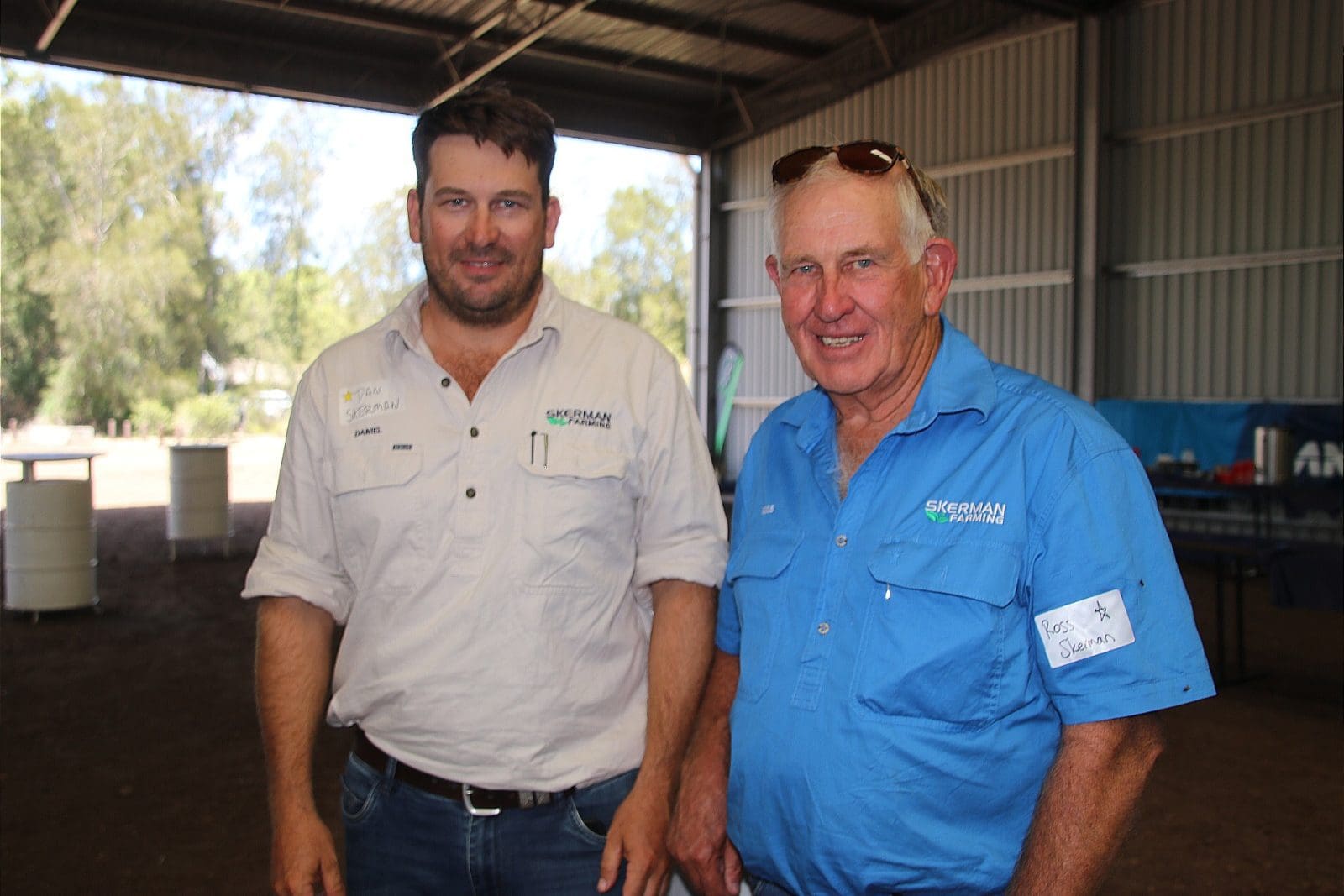
Dan and Ross Skerman from Skerman Farming at Dalby.
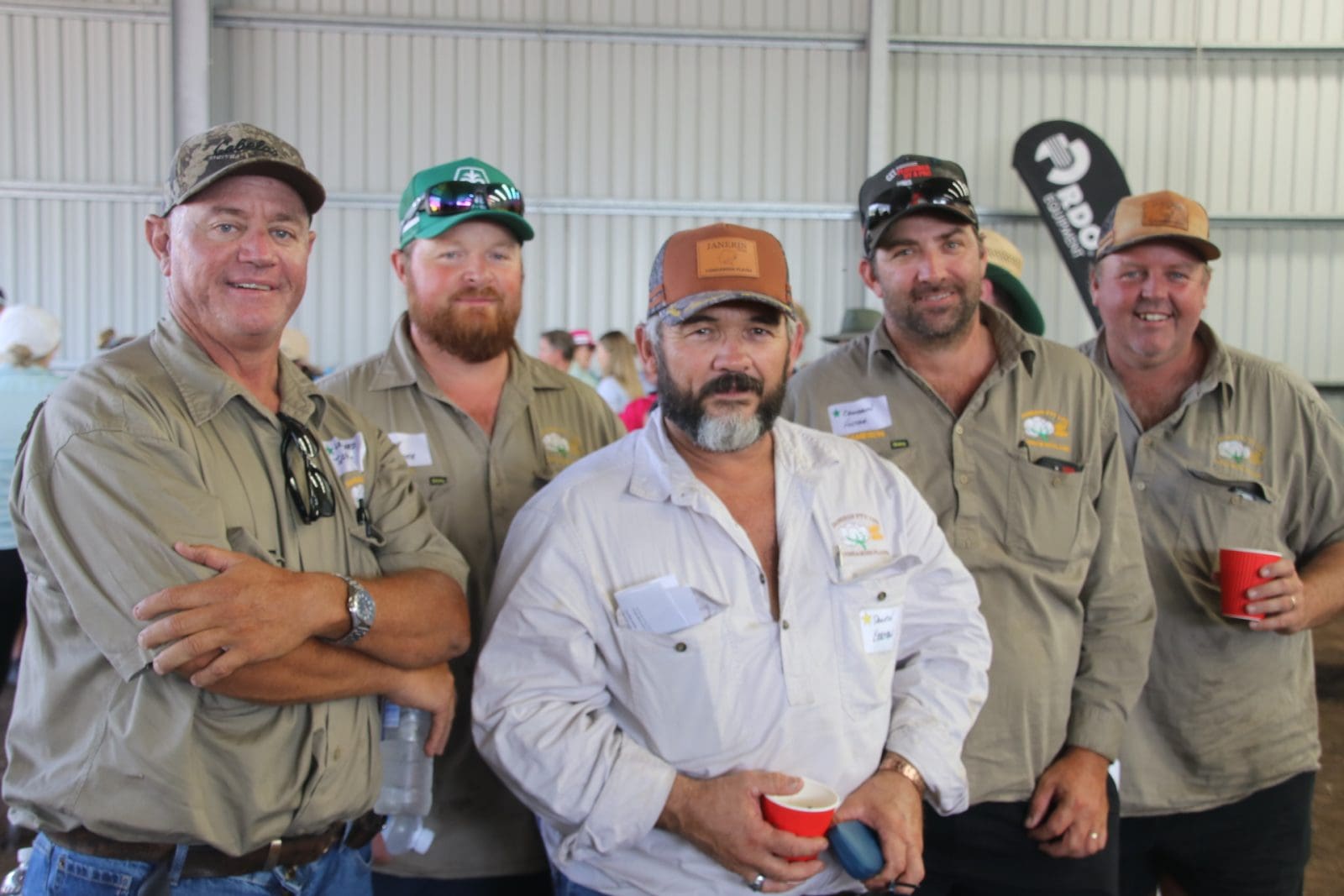
Leonard Jarick, Shane Webster, Damien Ebbern, Clinton Foster and Chris Norman from Janerin Pty Ltd, Condamine Plains.
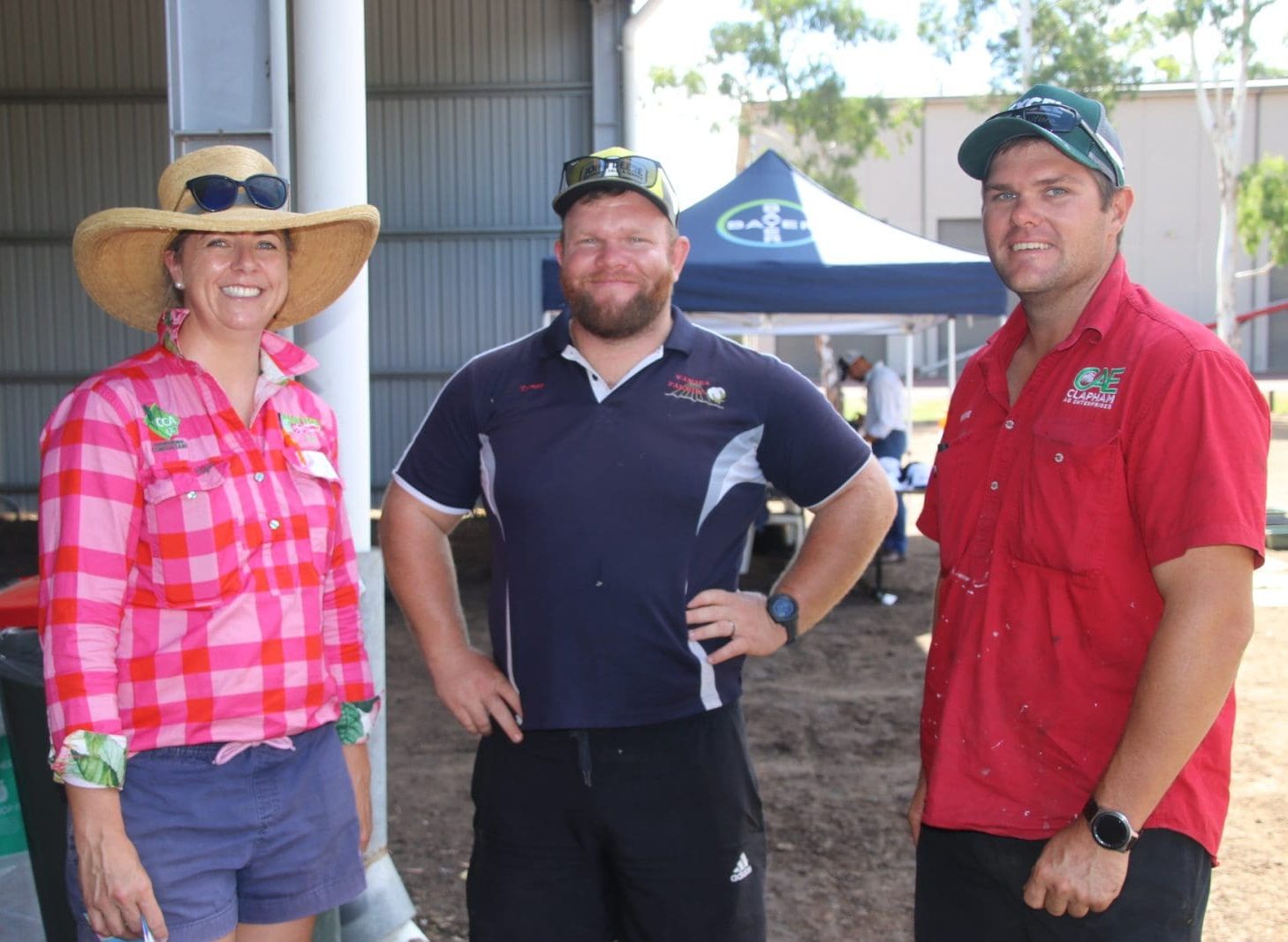
Liz Lobsey, Dalby; Tyson Armitage, Wamara Farming, Cecil Plains; and Brodie Cronau, Clapham Ag, Brookstead.
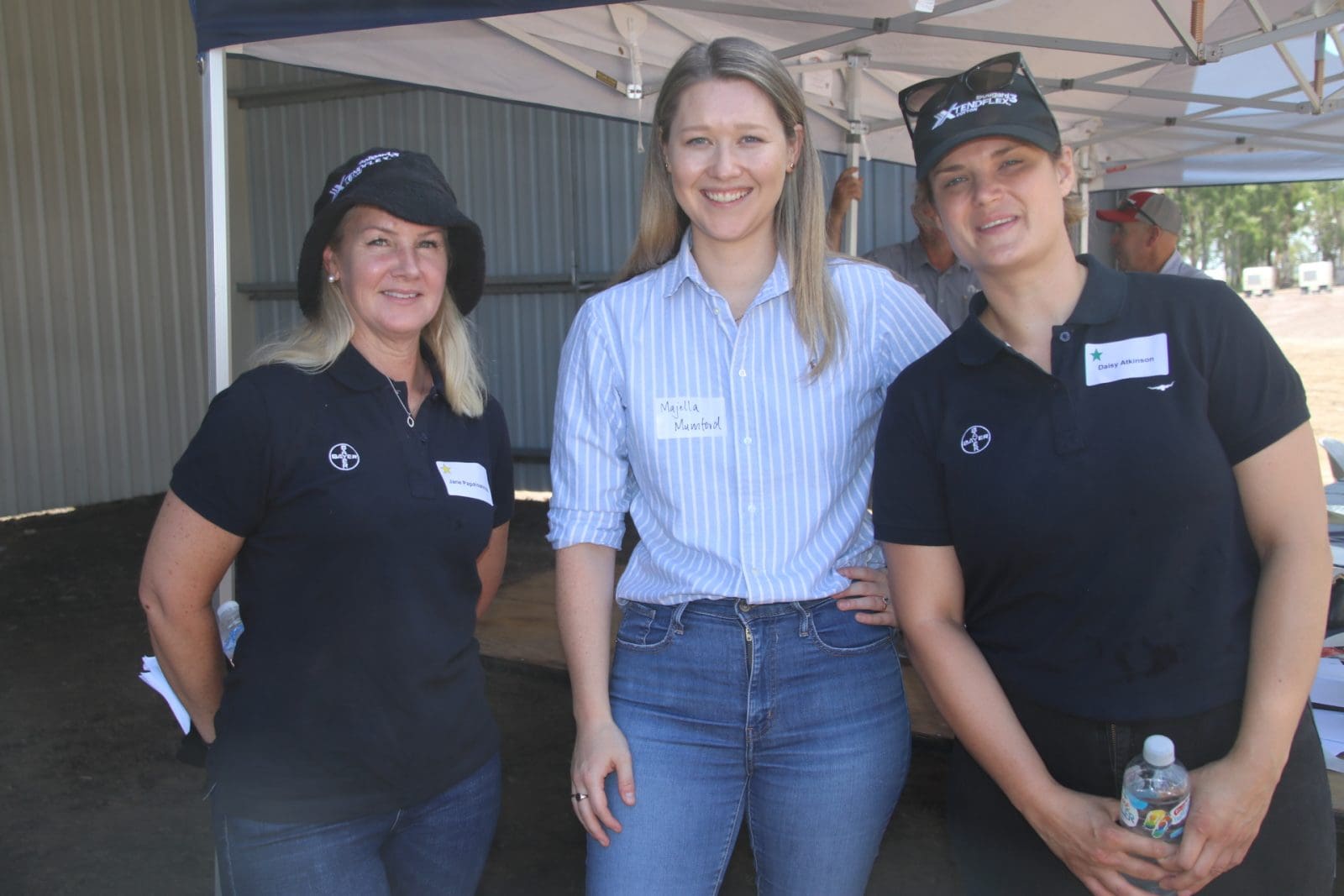
Jane Papaioannou (left) and Daisy Atkinson (right) from Bayer with Majella Mumford, Carbon Friendly.
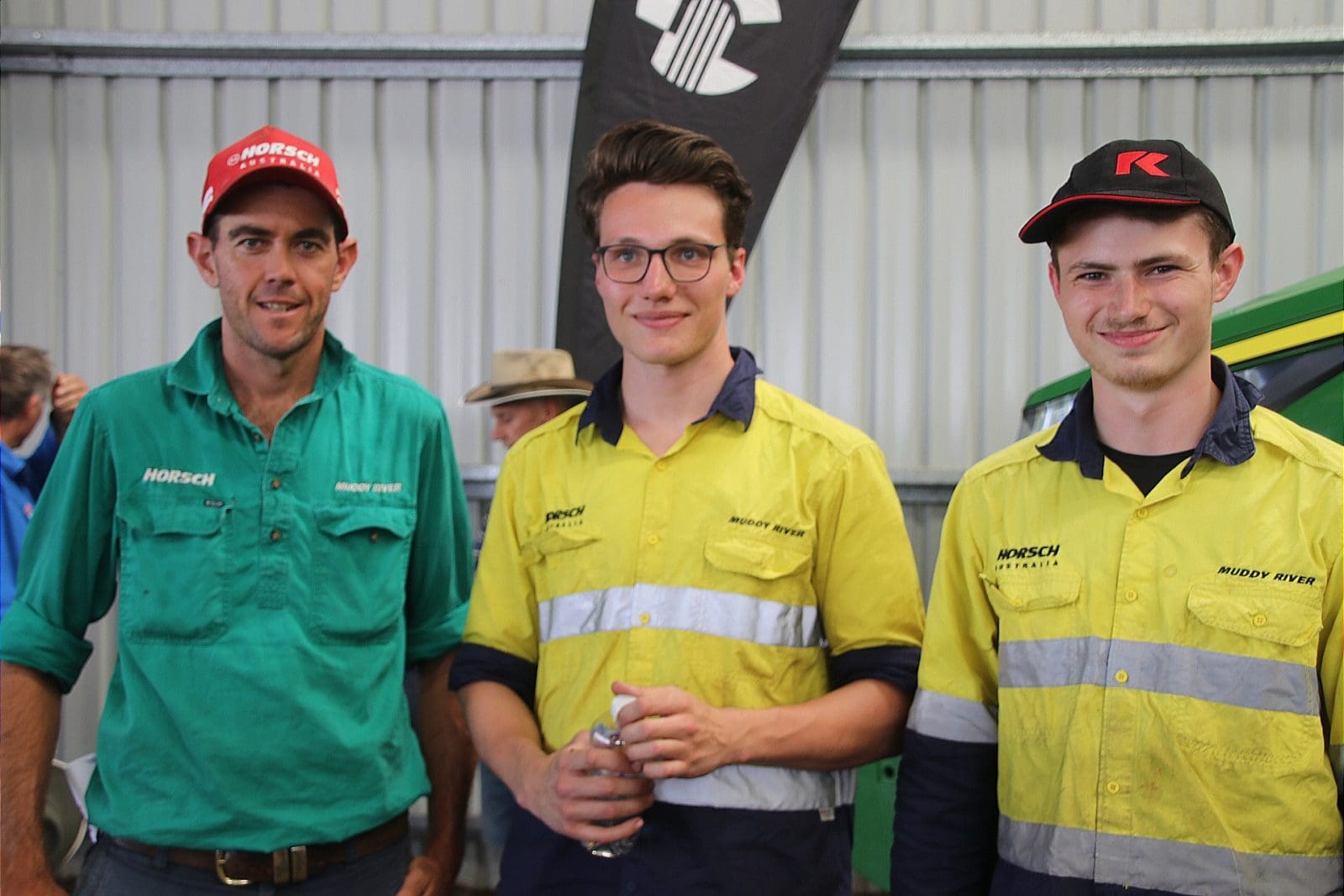
Clinton Hayward, Sev Fallgatter and Marius Schantz from Muddy River, Toowoomba.
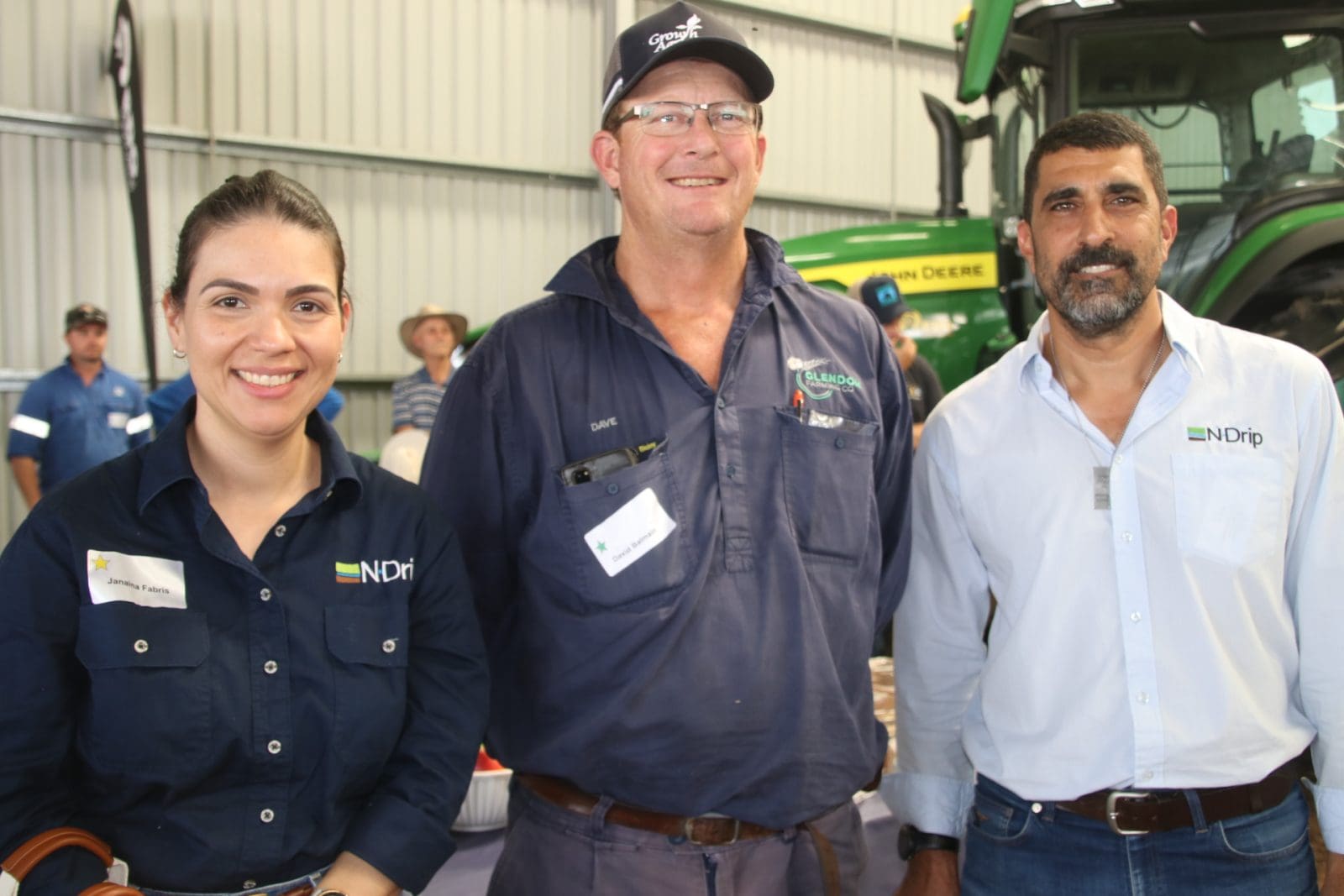
Janaina Fabris (left) and Udi David Stern (right) from NDrip, Toowoomba, with David Balmain, Glendon Farming Co, Nangwee.
Grain Central: Get our free news straight to your inbox – Click here

HAVE YOUR SAY